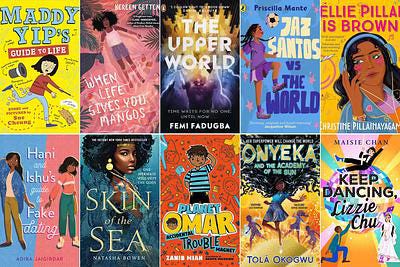The Reading Mandate
How can we expect children to love reading when we don't let them choose their reading material?
I read Middlemarch at university. I won’t lie to you, as much as I appreciated the novel as a tour de force, I didn’t find it pleasurable. In fact, I distinctly remember feeling frustrated, wanting to put it down, and finding it heavy going. I was a twenty year old student of literature, so I understood what it meant to read books I was told to read.
Reading for pleasure was something I had engaged in as a child. There is a particular commonality in those who describe themselves as readers, one that sits in having the desire, the volition to read. The urge to escape, perhaps, into a book. The motivation to pick a book up, to assess its fit into the schema of literature that you have already read, is part and parcel of the reading experience. There is an autonomy there. And mostly, no judgement about what might be the right book, the culturally important book, the one that will help you understand the society you live in.
Imagine my surprise when I saw that a school had prescribed Middlemarch for a Year 8 read aloud in form time, as part of a venture to expose young people to significant authors, ones that they might not access independently. I bear no objection to the idea that people should read Middlemarch - in fact, it ought to be celebrated if it is read by an age-appropriate audience, guided by an informed teacher who can navigate the complexities of the text.
The justification for heavy-hitters of literature to be included in a school’s reading for pleasure programme is often rooted in the idea that these children will not gain cultural capital if they are not exposed to canonical classics, or modern day juggernauts. Except this is a double-edged sword. Prescribing texts in a quest to foster a love of reading turns the activity into a job, a box to be ticked. And cultural capital doesn’t only exist in Victorian triple-deckers.
What happened to helping young people choose texts for themselves in order for them to truly know what it feels like to sink into a book they love?
We are blessed to live in an age where children’s and young adult literature is flourishing. There is an abundance of stories that are vibrant, funny, dark, heartbreaking, and above all, engaging. Contemporary authors write with young readers in mind, crafting narratives that reflect the complexities of the modern world without the linguistic or historical barriers that often accompany the classics. Books by writers like Malorie Blackman, Philip Pullman, Elizabeth Acevedo, Patrick Ness, Angie Thomas—they captivate because they speak to the reader, not at them.
To position a book like Middlemarch as an introductory step to 'serious' reading can be alienating. Not because it lacks value - it doesn’t - but because it was never meant for children to read aloud in form time, bleary-eyed at 8:30 in the morning or in the middle of the day between Maths and Science. There is an earnestness in wanting young people to encounter greatness, to stretch their comprehension, to encounter complex moral and philosophical questions. But there is also a danger in confusing challenge with enrichment. Challenge without support can sour the experience entirely.
Literary joy grows best in the soil of curiosity. If we rob children of the chance to feel that first spark - that unprovoked pull toward a cover on a shelf, the magnetic draw of a sentence that crackles with voice - we may also rob them of the enduring love of reading. That’s a risk we can’t afford.
Reading for pleasure should begin with the pleasure part. The classics will always be there, waiting, when the reader is ready. They are not going anywhere. And when a young person picks up Middlemarch not because they must, but because they want to, the experience is transformed. That is where the magic lies.
This year, I mentored KS3 teachers and librarians as part of the Open University’s Reading Schools Programme. It’s a year long endeavour, led by the brilliant Professor Teresa Cremin and Kelly Ashley, and supported by me and Rachel Ayres. Our small team works with schools to build a culture of reading for pleasure, one in which choice is key. We recommend books, provide a book box brimming with examples of what could be read in schools. We help teachers to inform other teachers about children’s literature and YA.
What I’ve learned through the programme and by reading the research that Professor Cremin has expertly presented, is that developing a love of reading doesn’t happen by force. It doesn’t happen when we say ‘this is a book you have to read so you can become clever’. It happens when books are made tempting, when they are talked about in corridors between teachers, students, families.
I am working on this programme again next year. If you are interested in joining the programme, you can find information here:
https://ourfp.org/schools-teachers/rsp-ks3-jan-2025-new/
On Friday 6th March 2026, we will be holding a conference at The OU in Milton Keynes with author Lucy Strange, workshops and more to explore strategies for overcoming barriers to reading engagement in adolescence. Hold that date and join us!
So, in summary:
Let them choose. Let them love what they read. The rest will follow.
Further reading:






Am with you on 'Middlemarch', Bennie. I reread it last summer after decades, and that was a great pleasure, but can't imagine it would be suitable for anyone in school.
Exactly this. Reading prescriptions, reading fan fiction., exploring all the brilliant YA choices out there will create a love of reading for its own sake not for the perceived value of canonical texts.